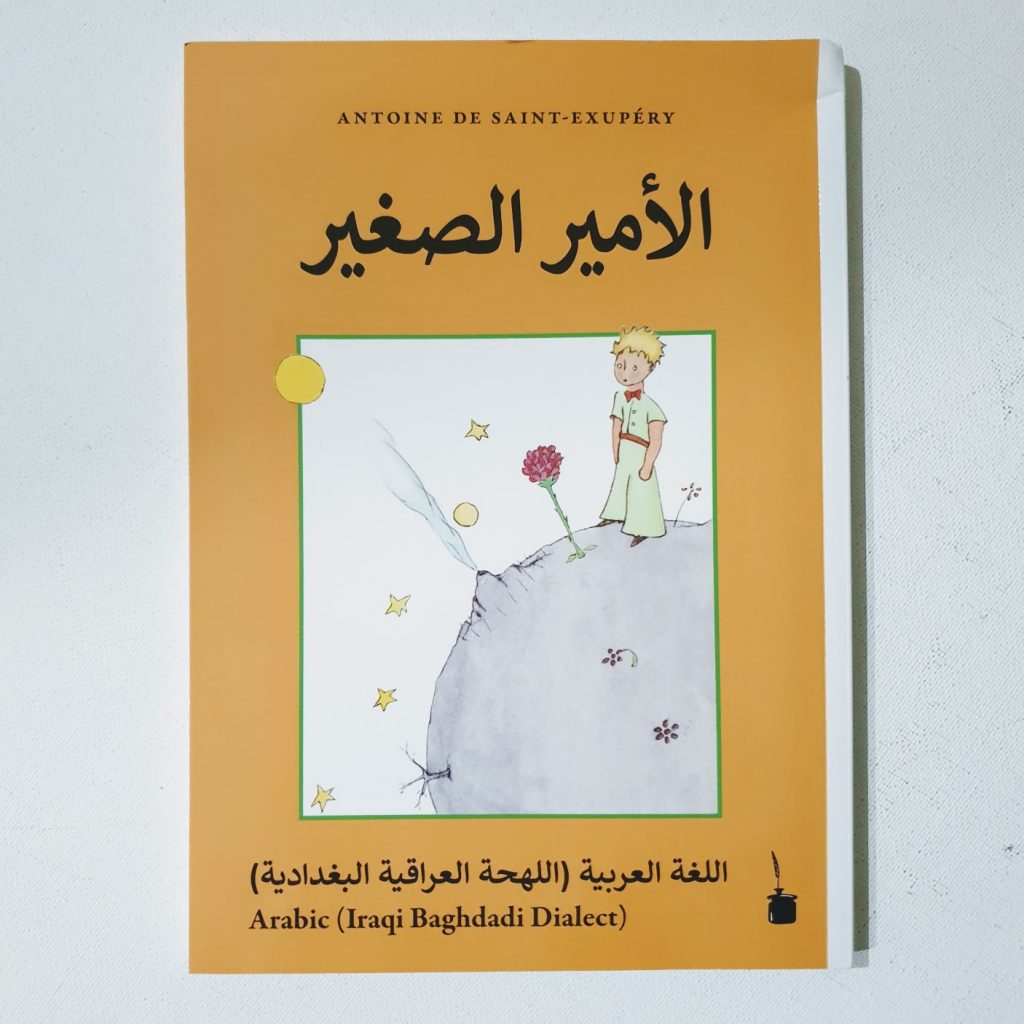
الأمير الصغير (Al Amirus Shaghir), in Iraqi Baghdadi dialect of Arabic language.
The Baghdadi dialect of Arabic, often referred to as ʿĀmmiyyat Baġdād or simply Baghdadi Arabic, is the prestige variety of Iraqi Arabic and one of the most linguistically and culturally influential urban dialects in the Arab world. Rooted in Mesopotamia’s ancient multilingual legacy, it has been shaped by a long succession of civilisations—Sumerian, Akkadian, Persian, Greek, Arab, Ottoman, and British—resulting in a uniquely layered linguistic identity. Baghdadi Arabic is based on the Mesopotamian dialect continuum, but its urban variety is especially known for its smooth rhythm, expressive idioms, and vocabulary drawn not only from Classical Arabic but also from Persian, Turkish, Aramaic, Kurdish, and even English, reflecting Baghdad’s cosmopolitan past and present.
Historically, as the capital of the Abbasid Caliphate, Baghdad was the heart of Islamic civilisation during its golden age, where science, philosophy, literature, and theology flourished. This intellectual legacy still echoes through the language, which has long been associated with urban refinement and cultural sophistication. The dialect retains many features of Classical Arabic grammar and lexicon, but its phonology and syntax have evolved to accommodate the city’s diverse populations. For example, the classical qāf often becomes a glottal stop [ʔ] in Baghdadi speech, much like in Levantine Arabic, though certain rural or tribal registers may preserve it as [g].
Culturally, Baghdadi Arabic has been the voice of Iraqi music, poetry, theatre, and radio drama—most notably through maqām traditions and post-war literature that combine emotional depth with sardonic wit. It reflects the city’s vibrant yet often troubled history, mirroring both resilience and loss. In daily conversation, expressions like shlonak? (“How are you?”) and yalla bina (“Let’s go!”) reveal its warmth and accessibility, while proverbs such as el-‘aql zīn el-bāshar (“Reason is a person’s ornament”) embody traditional Iraqi values.
In relation to other Arabic dialects, Baghdadi Arabic sits somewhere between the Gulf, Levantine, and Egyptian varieties, but it retains a distinct Mesopotamian character. It is mutually intelligible with most dialects spoken in Iraq but may be less accessible to speakers from Morocco or Algeria, whose dialects have diverged more significantly. Nonetheless, through migration, media, and diaspora communities, Baghdadi Arabic has travelled far beyond the banks of the Tigris.
Today, despite decades of conflict and displacement, Baghdadi Arabic continues to evolve, absorbing modern slang, technological terms, and expressions from diaspora life, especially among younger Iraqis. It remains a linguistic emblem of Baghdad’s soul—a city of ruins and rebirths, where Arabic is not only spoken but felt, carried in the voice of poets, cab drivers, grandmothers, and street musicians alike.


